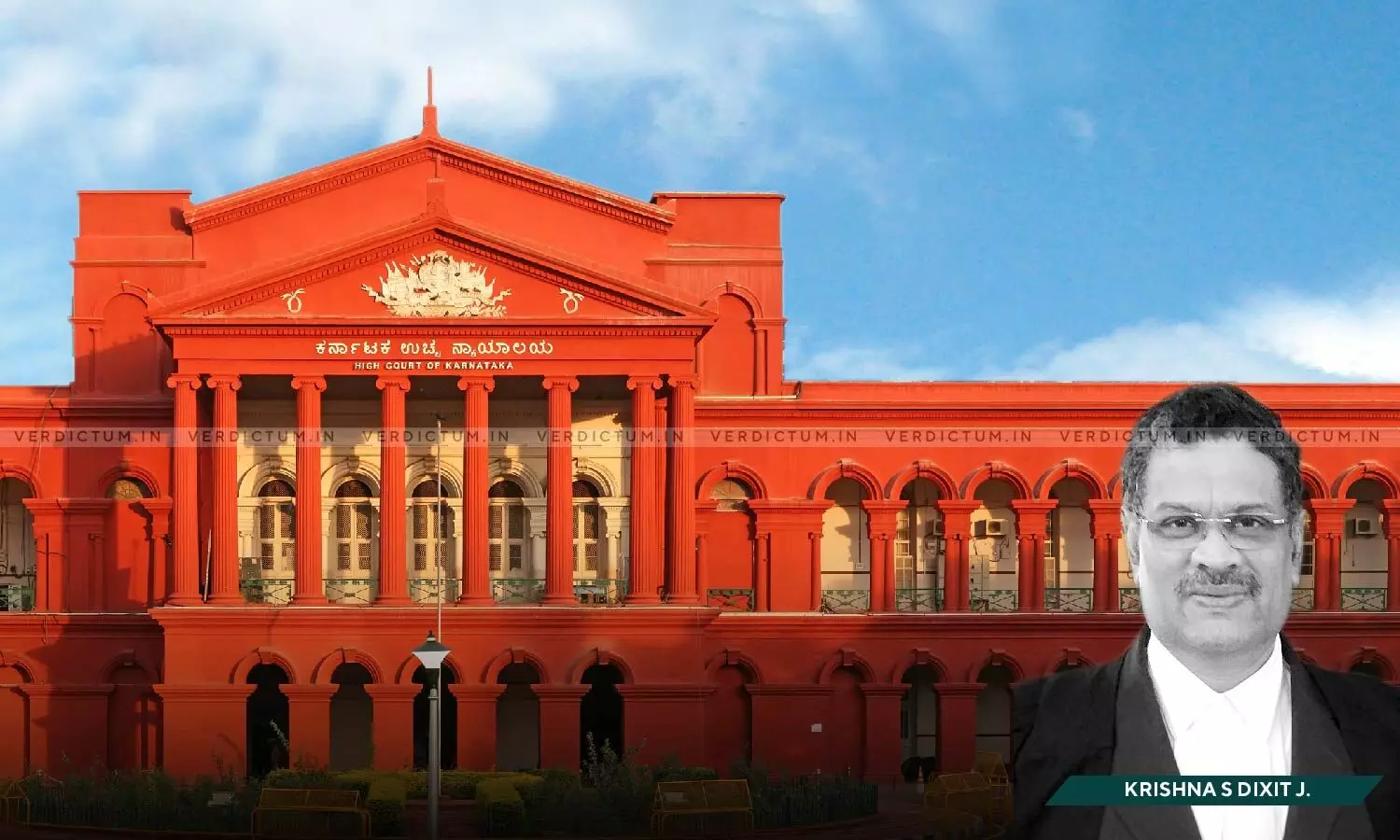
Political Party Can Be Arrayed As Accused In Defamation Proceedings: Karnataka HC Dismisses BJP's Plea To Quash Defamation Complaint By Congress Leader
 |
|The Karnataka High Court held that a political party can be arrayed as an accused in the defamation proceedings.
The Court held thus while dismissing a petition filed by Bharatiya Janata Party (BJP) seeking to quash a complaint filed by Congress Party Leader Rizwan Irshad.
A Single Bench of Justice Krishna S. Dixit observed, “When an entity, whether incorporated or not, is inclusively defined by a statute as a ‘person’, it can maintain a proceeding for the offence of defamation; in other words, the idea of reputation is not ‘natural person’ specific. Even legal persons like governments, companies, deities, trade unions, can also have reputation. As a corollary of this, there can be a proceeding of the kind against such persons, as well. (Law can prescribe modalities for taking up such proceedings, is beside the point). An argument to the contrary does not stand to the rules of reason & justice.”
The Bench said that the word ‘whoever’ inter alia employed in Sections 499 and 500 of the Indian Penal Code (IPC) implicitly includes an association of individuals, whether incorporated or not, and such entities can be arrayed as accused in criminal proceedings of the kind.
Advocate Dilli Rajan represented the petitioner while Advocate S A Ahmed represented the respondent.
Factual Background -
BJP, the national political party preferred a criminal petition under Section 482 of the Criminal Procedure Code (CrPC) seeking quashing of the criminal proceedings for the offence of defamation punishable under Section 500 of IPC. The said proceedings were pending before the Special Court for the trial of cases of MPs/MLAs and BJP along with another was the accused in it. Congress leader Rizwan (respondent/complainant) filed a complaint in 2019 alleging that BJP had tweeted certain matter that were grossly defamatory of him.
The Special Court took cognizance of the offence and directed registration of the criminal case against BJP for the offence of defamation. It also directed issue of summons to the party and the same was admitted to bail vide an order and the cash security of Rs. 25,000/- was obtained as a condition for the enlargement of bail. BJP contended that it is not a ‘person’ and hence defamation proceedings against it are not maintainable.
The High Court after hearing the contentions of parties noted, “A bare perusal of the subject tweets which are reproduced herein above, by no stretch of imagination can be said to be innocent/innocuous. The allegations are wild such as fabricating the fake voters ID cards and that the complainant is behind this racket. … That being the position, the subject tweets taken at their face value are defamatory of him. There is no scope for the invocation of any of the propositions in BHAJAN LAL supra. It hardly needs to be stated that at the stage of taking cognizance, learned Judge has done the exercise in a normative way, and rightly he did not hold the mini-trial. The prayer for quashment of impugned proceedings structured on a contra premise therefore is liable to be rejected.”
The Court further said that an unincorporated body of individuals also answers the definition of ‘person’ in terms of Section 11 of IPC and that there is no difference between a corporate entity which obviously is a legal person and an unincorporated body of individuals, which fits into statutory inclusive definition of ‘person’. It added by saying that an unincorporated body of individuals may not have the attributes of a ‘legal person’ is true.
“The vehement submission of learned counsel for the petitioner that his client is only an association of individuals, although it is registered as a Society and further, it is registered & recognized by the Election Commission of India, may be true. However, his further submission that intention cannot be attributed to it, is difficult to countenance in view of the inclusive definition of ‘person’ and there being a natural person as a co-accused in the impugned proceedings”, it also observed.
The Court relied upon the judgment in the case of Standard Chartered Bank v. Directorate of Enforcement (2005) 4 SCC 530 in which it was held that there is no immunity to the corporate entities from prosecution merely because it is in respect of offences for which the punishment is mandatory imprisonment and fine.
Accordingly, the High Court dismissed the petition.
Cause Title- Bharatiya Janata Party v. Rizwan Arshad (Neutral Citation: 2024:KHC:7525)
Appearance:
Petitioner: Advocates Dilli Rajan and K N Subba Reddy.
Respondent: Advocate S A Ahmed